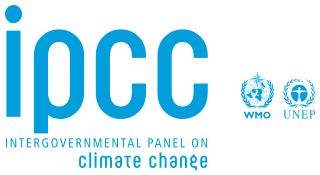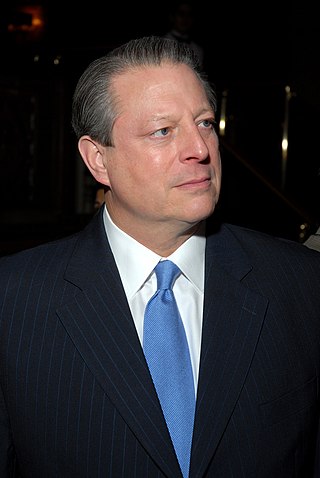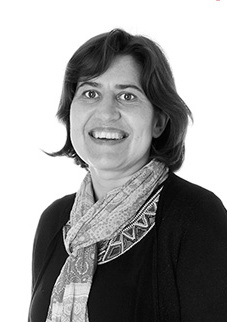
The Intergovernmental Panel on Climate Change (IPCC) is an intergovernmental body of the United Nations. Its job is to advance scientific knowledge about climate change caused by human activities. The World Meteorological Organization (WMO) and the United Nations Environment Programme (UNEP) established the IPCC in 1988. The United Nations endorsed the creation of the IPCC later that year. It has a secretariat in Geneva, Switzerland, hosted by the WMO. It has 195 member states who govern the IPCC. The member states elect a bureau of scientists to serve through an assessment cycle. A cycle is usually six to seven years. The bureau selects experts to prepare IPCC reports. It draws the experts from nominations by governments and observer organizations. The IPCC has three working groups and a task force, which carry out its scientific work.

The Nobel Prizes are five separate prizes that, according to Alfred Nobel's will of 1895, are awarded to "those who, during the preceding year, have conferred the greatest benefit to humankind." Alfred Nobel was a Swedish chemist, engineer, and industrialist most famously known for the invention of dynamite. He died in 1896. In his will, he bequeathed all of his "remaining realisable assets" to be used to establish five prizes which became known as "Nobel Prizes". Nobel Prizes were first awarded in 1901.

Bert Rickard Johannes Bolin was a Swedish meteorologist who served as the first chairman of the Intergovernmental Panel on Climate Change (IPCC), from 1988 to 1997. He was professor of meteorology at Stockholm University from 1961 until his retirement in 1990.

Rajendra Kumar Pachauri was the chairman of the Intergovernmental Panel on Climate Change (IPCC) from 2002 to 2015, during the fourth and fifth assessment cycles. Under his leadership the IPCC was awarded the Nobel Peace Prize in 2007 and delivered the Fifth Assessment Report, the scientific foundation of the Paris Agreement. He held the post from 2002 until his resignation in February 2015 after facing multiple allegations of sexual harassment. In March 2022, he was exonerated of the sexual harassment allegations. He was succeeded by Hoesung Lee. Pachauri assumed his responsibilities as the Chief Executive of The Energy and Resources Institute in 1981 and led the institute for more than three decades and demitted office as Executive Vice Chairman of TERI in 2016. Pachauri, universally known as Patchy, was an internationally recognized voice on environmental and policy issues, and his leadership of the IPCC contributed to the issue of human-caused climate change becoming recognized as a matter of vital global concern.
Kathleen A. Miller is a climate scientist who specializes in the economics of climate change and its effects on institutions, management of risk and investment decisions.
Steven W. Running is an American scientist and academic. He is an emeritus regents professor of ecology at W.A. Franke College of Forestry & Conservation at the University of Montana, as well as director of the Numerical Terradynamics Simulation Group. He also developed the earth observing-oriented algorithms used by the Moderate Resolution Imaging Spectroradiometer (MODIS) on board NASA’s satellites Terra and Aqua. Running's MOD17 algorithms are used to provide accurate and continuous global monitoring of the terrestrial biosphere, specifically generating near-real-time data sets for repeated monitoring of vegetation primary production on vegetated land at 1-km resolution at 8-day intervals. These datasets are unique in that they provide global data on primary productivity and span a decade.
Gary Wynn Yohe is the Huffington Foundation Professor of Economics and Environmental Studies at Wesleyan University, Middletown, Connecticut. He holds a PhD from Yale University.
Adil Najam is a Pakistani academic who also serves as the global President of WWF, the Worldwide Fund for Nature, and is Dean Emerıtus and Professor of International Relations and Earth and Environment at the Pardee School of Global Studies at Boston University. He was the founding Dean of the Pardee School from its creation in 2014 until 2022, when he was awarded the status of Dean Emeritus by Boston University. Previously he had served as vice-chancellor of the LUMS ın Lahore, Pakıstan.
Werner Kurz is a Canadian research scientist at Canada's Pacific Forestry Centre in Victoria, British Columbia. He is leading the development of an accounting system to assess potential climate change known as the National Forest Carbon Accounting System for Canada. Currently, his research focuses on using forest land to its maximum carbon efficiency, reducing the impact of natural disasters, and managing forests. Kurz holds a PhD in forest ecology from the University of British Columbia. He has made significant contributions to the Intergovernmental Panel on Climate Change (IPCC) and the work of the IPCC was recognized by the joint award of the 2007 Nobel Peace Prize.

The 2007 Nobel Peace Prize was shared, in two equal parts, between the Intergovernmental Panel on Climate Change (IPCC) and United States former vice president, Al Gore "for their efforts to build up and disseminate greater knowledge about man-made climate change, and to lay the foundations for the measures that are needed to counteract such change".

Alan Robock is an American climatologist. He is currently a Distinguished Professor in the Department of Environmental Sciences at Rutgers University, New Jersey. He advocates nuclear disarmament and, in 2010 and 2011, met with Fidel Castro during lecture trips to Cuba to discuss the dangers of nuclear weapons. Alan Robock was a 2007 IPCC author, a member of the organisation when it was awarded the Nobel Peace Prize, "for their efforts to build up and disseminate greater knowledge about man-made climate change, and to lay the foundations for the measures that are needed to counteract such change".

Valerie Masson-Delmotte is a French climate scientist and Research Director at the French Alternative Energies and Atomic Energy Commission, where she works in the Climate and Environment Sciences Laboratory (LSCE). She uses data from past climates to test models of climate change, and has contributed to several IPCC reports.

Raymond Ward Arritt was an American agronomist whose research focused on agricultural meteorology. He taught at Iowa State University from 1993 until his death in 2018. At Iowa State, he was responsible for operating the meteorological data repository Iowa Environmental Mesonet. He was one of three Iowa State faculty who contributed to the fourth (AR4) Intergovernmental Panel on Climate Change (IPCC) assessment report, which led to the IPCC sharing the 2007 Nobel Peace Prize with Al Gore.

Wei-Min Hao is an atmospheric chemist, Taiwanese-American climatologist, and currently works in the United States Department of Agriculture. His work directly contributed to the reason for awarding the 2007 Nobel Peace Prize. He is a member of the United States Agency for International Development (USAID) and an author of the Intergovernmental Panel on Climate Change (IPCC).
Sérgio Campos Trindade was a Brazilian chemical engineer and researcher, specialist in renewable energies and consultant in sustainable business. Trindade was the coordinating lead author for a chapter of an Intergovernmental Panel on Climate Change (IPCC) report, Methodological and Technical Issues in Technology Transfer (2000); the IPCC as an organization won the 2007 Nobel Peace Prize as a result of its contributors' work.
Richard Samson Odingo was a Kenyan scientist who was the vice chairman of the Intergovernmental Panel on Climate Change (IPCC) when it was awarded the Nobel Peace prize in 2007 with Al Gore. He had held this position for more than 20 years prior. He was awarded full Professorship at the University of Nairobi in Geography in 1987. He has been a consultant of several international agencies including multiple United Nations Agencies and has taught for many years at the University of Nairobi.

Opha Pauline Dube or Pauline Dube is a Botswanan environmental scientist and Associate Professor in the Department of Environmental Science at the University of Botswana. She co-authored the IPCC's Special Report on Global Warming of 1.5 °C. She is one of fifteen scientists creating the 2023 Global Sustainable Development Report for the United Nations.
Joyce Penner is an atmospheric scientist known for her research on climate change, especially on the impact of aerosols and clouds.









